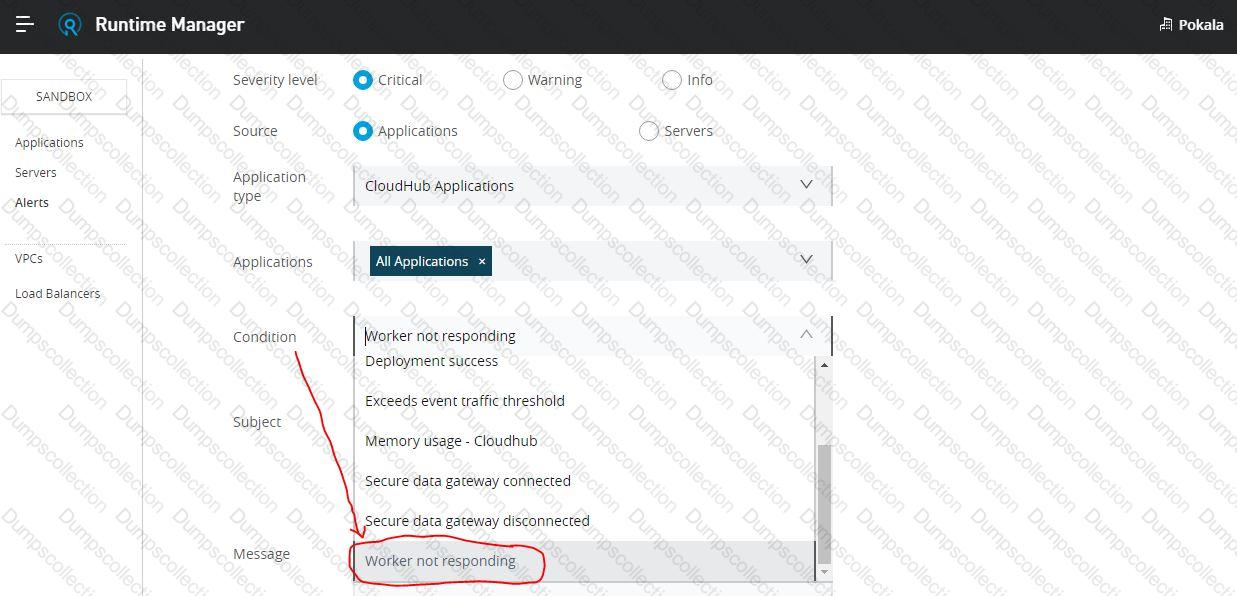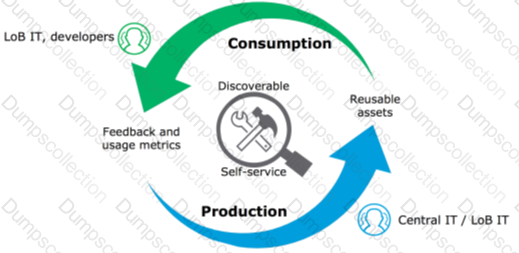MuleSoft MuleSoft Certified Platform Architect - Level 1 MCPA-Level-1 Exam Dumps: Updated Questions & Answers (January 2026)
An API implementation is deployed to CloudHub.
What conditions can be alerted on using the default Anypoint Platform functionality, where the alert conditions depend on the end-to-end request processing of the API implementation?
What Mule application can have API policies applied by
Anypoint Platform to the endpoint exposed by that Mule application?
A) A Mule application that accepts requests over HTTP/1.x

B) A Mule application that accepts JSON requests over TCP but is NOT required to provide a response
C) A Mute application that accepts JSON requests over WebSocket
D) A Mule application that accepts gRPC requests over HTTP/2
An API implementation is deployed on a single worker on CloudHub and invoked by external API clients (outside of CloudHub). How can an alert be set up that is guaranteed to trigger AS SOON AS that API implementation stops responding to API invocations?
A set of tests must be performed prior to deploying API implementations to a staging environment. Due to data security and access restrictions, untested APIs cannot be granted access to the backend systems, so instead mocked data must be used for these tests. The amount of available mocked data and its contents is sufficient to entirely test the API implementations with no active connections to the backend systems. What type of tests should be used to incorporate this mocked data?
Which component monitors APIs and endpoints at scheduled intervals, receives reports about whether tests pass or fail, and displays statistics about API and endpoint
performance?
A System API is designed to retrieve data from a backend system that has scalability challenges. What API policy can best safeguard the backend system?
A team is planning to enhance an Experience API specification, and they are following API-led connectivity design principles.
What is their motivation for enhancing the API?
A company wants to move its Mule API implementations into production as quickly as possible. To protect access to all Mule application data and metadata, the company requires that all Mule applications be deployed to the company's customer-hosted infrastructure within the corporate firewall. What combination of runtime plane and control plane options meets these project lifecycle goals?
When using CloudHub with the Shared Load Balancer, what is managed EXCLUSIVELY by the API implementation (the Mule application) and NOT by Anypoint Platform?
Which of the below, when used together, makes the IT Operational Model effective?


 Diagram, arrow
Description automatically generated
Diagram, arrow
Description automatically generated